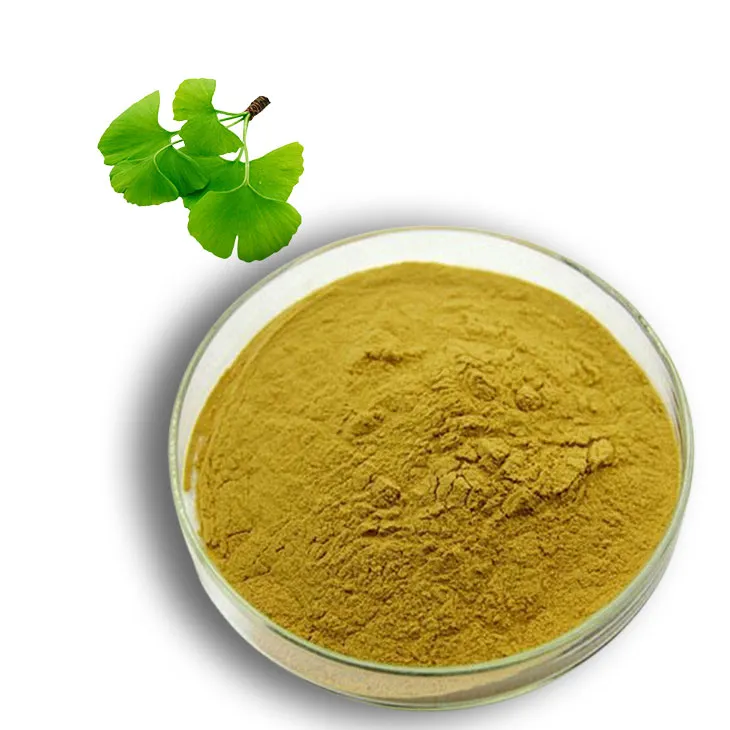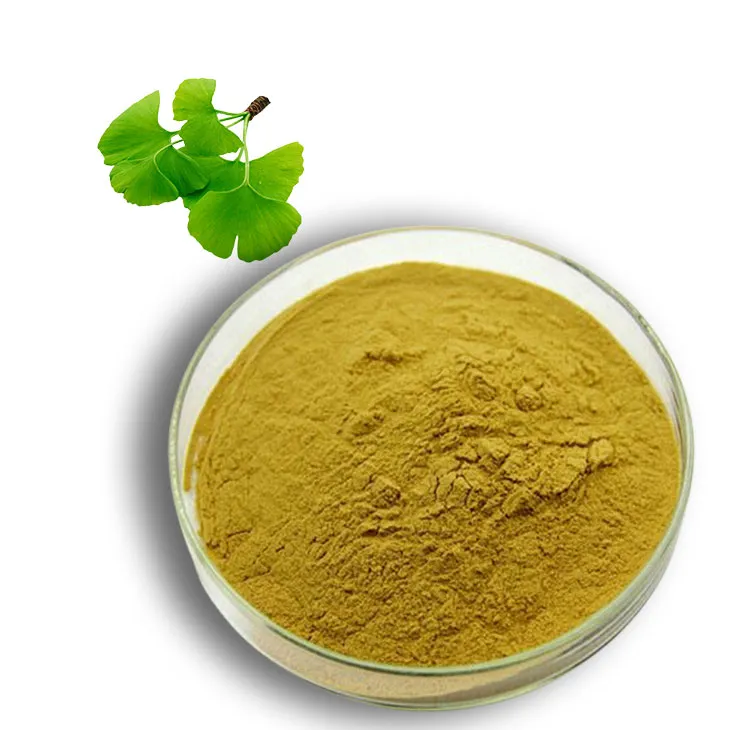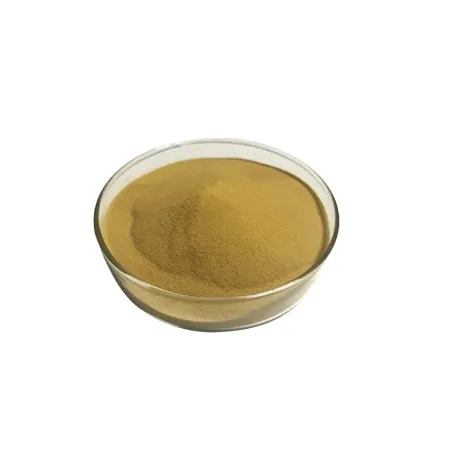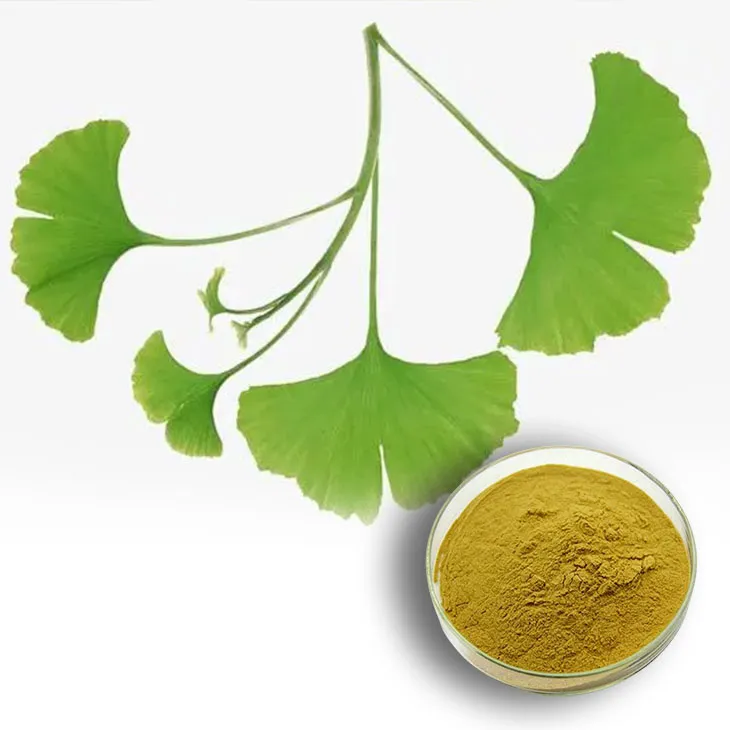- 0086-571-85302990
- sales@greenskybio.com
5 amazing things made from ginkgo biloba extract.
2024-11-14

1. Health Supplements
Ginkgo biloba extract has long been used in the form of health supplements. One of the main reasons is its potential impact on cognitive function. It is believed to enhance memory and improve concentration. Many studies have been carried out to explore this aspect. For example, in some research on elderly patients with mild cognitive impairment, ginkgo biloba extract showed certain positive effects in slowing down the decline of cognitive abilities.
Another benefit of ginkgo biloba extract in health supplements is its role in promoting blood circulation. It helps to dilate blood vessels, which in turn allows for better blood flow throughout the body. This can be particularly beneficial for those with circulatory problems, such as cold hands and feet due to poor peripheral circulation. By improving blood circulation, it may also contribute to reducing the risk of heart diseases, as proper blood flow is essential for maintaining a healthy heart.
In addition, ginkgo biloba extract is also thought to have antioxidant properties. Antioxidants are important for neutralizing free radicals in the body. Free radicals are unstable molecules that can cause damage to cells and are associated with various diseases and the aging process. The antioxidants in ginkgo biloba extract can help protect cells from this damage, potentially leading to better overall health and a reduced risk of certain chronic diseases.

2. Skincare Products
Ginkgo biloba extract has found its way into the world of skincare. One of its remarkable properties in skincare is its anti - inflammatory effect. Skin inflammation can be caused by a variety of factors, such as environmental pollutants, allergens, or even internal hormonal imbalances. Ginkgo biloba extract can help soothe irritated skin and reduce redness. For example, in some creams designed for sensitive skin, the addition of ginkgo biloba extract can make the product more effective in calming down the skin.
Another important aspect of ginkgo biloba extract in skincare is its antioxidant action. As mentioned before, antioxidants are crucial for protecting the skin from free radical damage. The skin is constantly exposed to external factors like ultraviolet (UV) radiation from the sun, which generates free radicals. By using skincare products containing ginkgo biloba extract, the skin can be better protected against these harmful effects, resulting in a reduction of premature aging signs such as wrinkles and fine lines.
Ginkgo biloba extract also has the potential to improve skin tone. It can help to even out the complexion by promoting cell renewal. When skin cells are renewed more efficiently, the skin appears more radiant and healthy. Some face masks and serums with ginkgo biloba extract are marketed for this purpose, promising to give users a more youthful and glowing complexion.

3. Herbal Teas
Ginkgo biloba - based herbal teas are becoming increasingly popular. These teas are often prepared from dried ginkgo biloba leaves or extracts. One of the appealing aspects of ginkgo biloba tea is its potential to relieve stress. In today's fast - paced world, stress is a common problem that can have negative impacts on both physical and mental health. Drinking ginkgo biloba tea may help relax the body and mind, providing a sense of calm.
Ginkgo biloba tea also has properties that can support the immune system. The natural compounds in ginkgo biloba can stimulate the body's defense mechanisms, making it more resistant to infections. Regular consumption of ginkgo biloba tea may help reduce the frequency of getting sick, especially during the cold and flu seasons.
Moreover, some people claim that ginkgo biloba tea can improve digestion. It is thought to have a mild regulatory effect on the digestive system, helping with issues such as indigestion or bloating. However, more scientific research is needed to fully confirm this effect.

4. Dietary Additives in Functional Foods
In the realm of functional foods, ginkgo biloba extract is used as a dietary additive. Functional foods are those that offer additional health benefits beyond basic nutrition. Ginkgo biloba extract can be added to foods such as energy bars or breakfast cereals. Its presence in these foods can contribute to enhancing cognitive performance for those who consume them regularly. For example, students or professionals who need to stay focused during long hours of study or work may benefit from consuming functional foods with ginkgo biloba extract.
Another role of ginkgo biloba extract in functional foods is related to its potential in maintaining healthy eyesight. There are some studies suggesting that the compounds in ginkgo biloba may help protect the eyes from certain degenerative diseases. By incorporating ginkgo biloba extract into foods, it can be a convenient way to potentially support eye health, especially for people at risk of developing eye problems such as the elderly or those with a family history of eye diseases.
Ginkgo biloba extract in functional foods may also play a part in improving overall energy levels. Since it helps with blood circulation and oxygen delivery to cells, it can give a natural boost to energy. This can be beneficial for athletes or those with an active lifestyle who need an extra edge in their performance.

5. Natural Remedies for Tinnitus
Tinnitus, the perception of ringing or buzzing in the ears, can be a very distressing condition. Some studies have explored the use of ginkgo biloba extract as a natural remedy for tinnitus. Although the exact mechanism is not fully understood, it is thought that ginkgo biloba's ability to improve blood circulation in the ear area may be related to its potential in alleviating tinnitus symptoms.
There are also theories that ginkgo biloba extract may have a neuroprotective effect on the auditory system. This could be beneficial for those with tinnitus caused by nerve damage or disorders. By protecting the auditory nerves, it may help reduce the intensity or frequency of the tinnitus sounds.
However, it should be noted that while ginkgo biloba extract shows some promise in treating tinnitus, more research is still needed to establish its effectiveness and safety as a long - term treatment option.
FAQ:
What are the main health benefits of ginkgo biloba extract?
Ginkgo biloba extract is believed to have several health benefits. It may improve blood circulation, which can be beneficial for the brain and help with cognitive functions such as memory and concentration. It also has antioxidant properties that can protect cells from damage caused by free radicals. Additionally, it may help in reducing symptoms of anxiety and depression in some cases, and might be useful for people with certain eye problems due to its potential impact on blood vessels in the eyes.
How is ginkgo biloba extract used in skincare products?
In skincare, ginkgo biloba extract is used for its antioxidant and anti - inflammatory properties. The antioxidants in the extract can help fight against environmental stressors like pollution and UV radiation that can damage the skin. Its anti - inflammatory nature can soothe irritated skin, reduce redness, and may also be beneficial for certain skin conditions such as eczema or psoriasis. It can be found in various forms in skincare products, such as creams, serums, and masks.
Are there any side effects of using products with ginkgo biloba extract?
Some people may experience side effects when using products with ginkgo biloba extract. These can include mild gastrointestinal issues like nausea, vomiting, or diarrhea. In rare cases, it may also cause allergic reactions. Additionally, ginkgo biloba can thin the blood, so it should be used with caution by people taking blood - thinning medications or those with bleeding disorders as it may increase the risk of bleeding.
Can ginkgo biloba extract really improve memory?
There is some evidence to suggest that ginkgo biloba extract may have a positive impact on memory. Its ability to improve blood circulation in the brain could potentially enhance cognitive functions, including memory. However, the research results are not entirely conclusive. Some studies have shown modest improvements in memory and cognitive performance in certain groups, such as the elderly or those with mild cognitive impairment, while other studies have not found significant effects.
How is ginkgo biloba extract produced?
Ginkgo biloba extract is typically produced from the leaves of the ginkgo biloba tree. The leaves are first harvested, and then various extraction methods are used. One common method is solvent extraction, where solvents like ethanol or water are used to extract the active compounds from the leaves. After extraction, the solvent is removed, and the resulting extract is purified and standardized to ensure a consistent quality and concentration of the active ingredients.
Related literature
- The Effects of Ginkgo Biloba Extract on Cognitive Function: A Meta - Analysis"
- "Ginkgo Biloba Extract in Skincare: Properties and Applications"
- "Beneficial and Adverse Effects of Ginkgo Biloba Extract: An Overview"
- ▶ Hesperidin
- ▶ Citrus Bioflavonoids
- ▶ Plant Extract
- ▶ lycopene
- ▶ Diosmin
- ▶ Grape seed extract
- ▶ Sea buckthorn Juice Powder
- ▶ Fruit Juice Powder
- ▶ Hops Extract
- ▶ Artichoke Extract
- ▶ Mushroom extract
- ▶ Astaxanthin
- ▶ Green Tea Extract
- ▶ Curcumin
- ▶ Horse Chestnut Extract
- ▶ Other Product
- ▶ Boswellia Serrata Extract
- ▶ Resveratrol
- ▶ Marigold Extract
- ▶ Grape Leaf Extract
- ▶ New Product
- ▶ Aminolevulinic acid
- ▶ Cranberry Extract
- ▶ Red Yeast Rice
- ▶ Red Wine Extract
-
Sea buckthorn Juice Powder
2024-11-14
-
Phellodendron Extract
2024-11-14
-
Mulberry Extract
2024-11-14
-
Cassia Seed Extract
2024-11-14
-
Cat Claw Extract
2024-11-14
-
Sugarcane Extract
2024-11-14
-
Artichoke Leaf Extract
2024-11-14
-
Beetroot Powder
2024-11-14
-
Eucommia Ulmoides Extract
2024-11-14
-
Oat Straw Extract Powder
2024-11-14





















